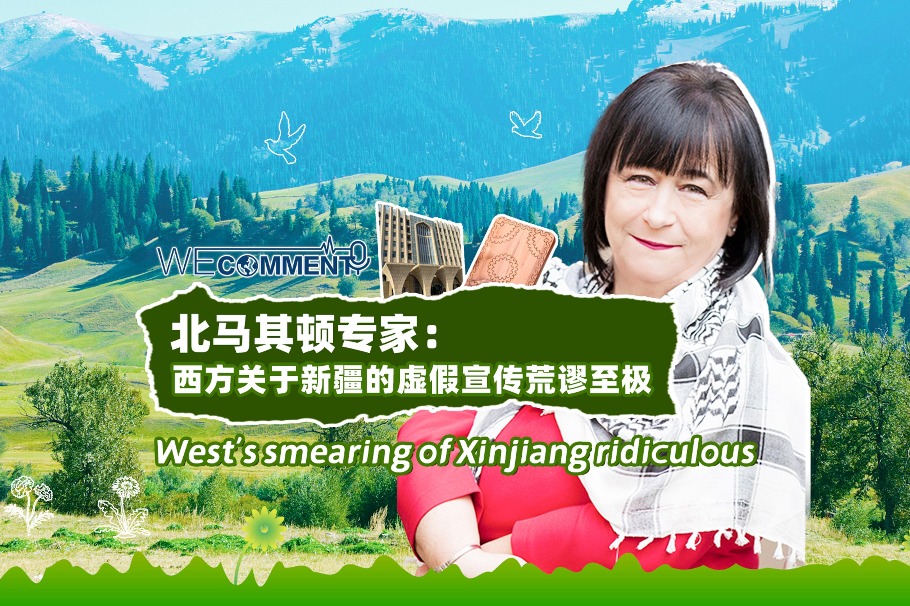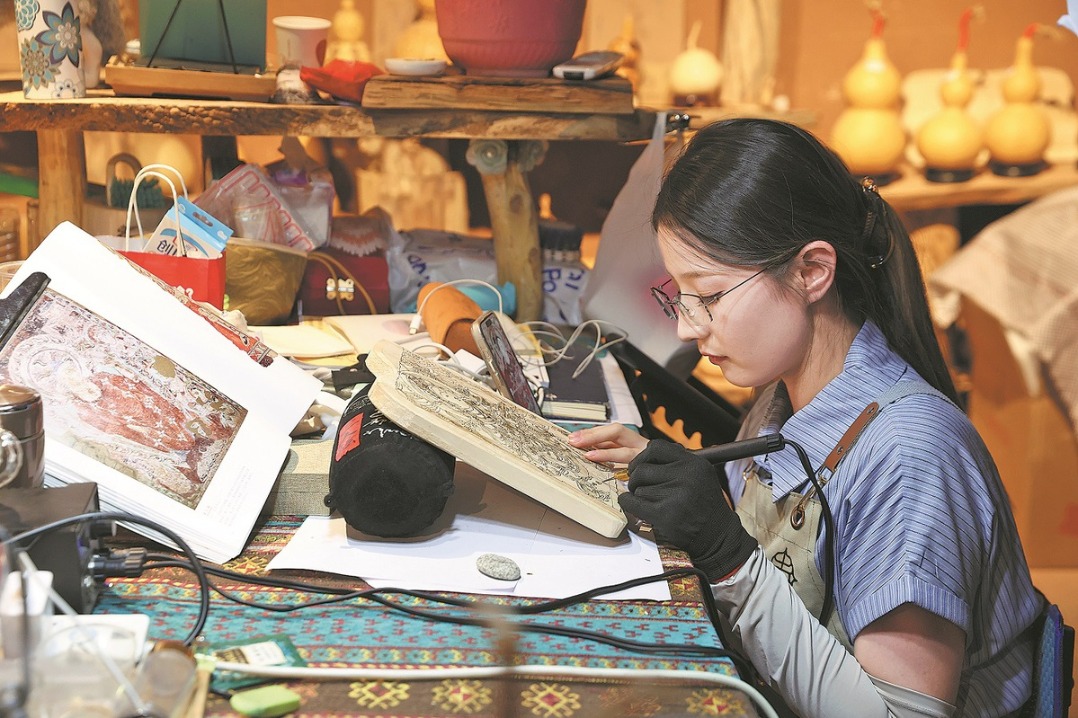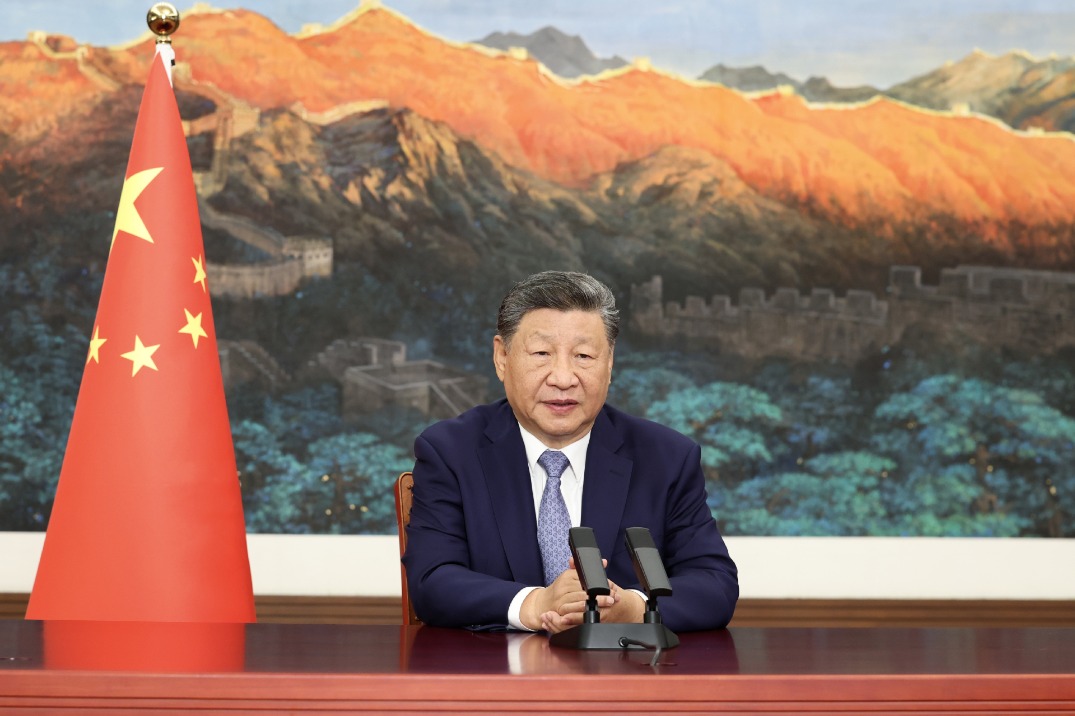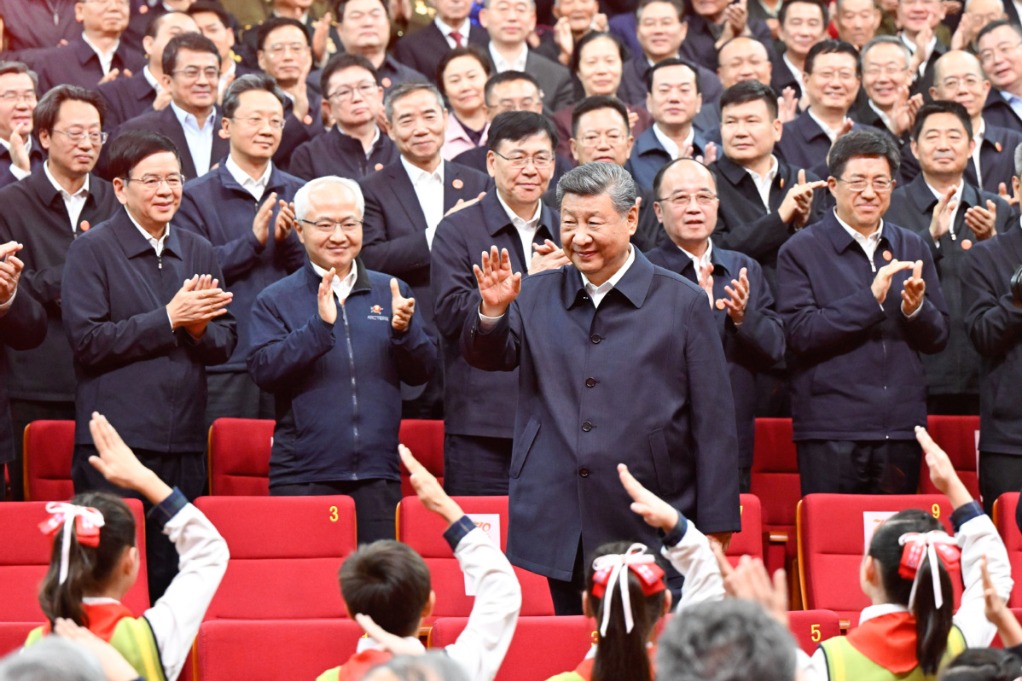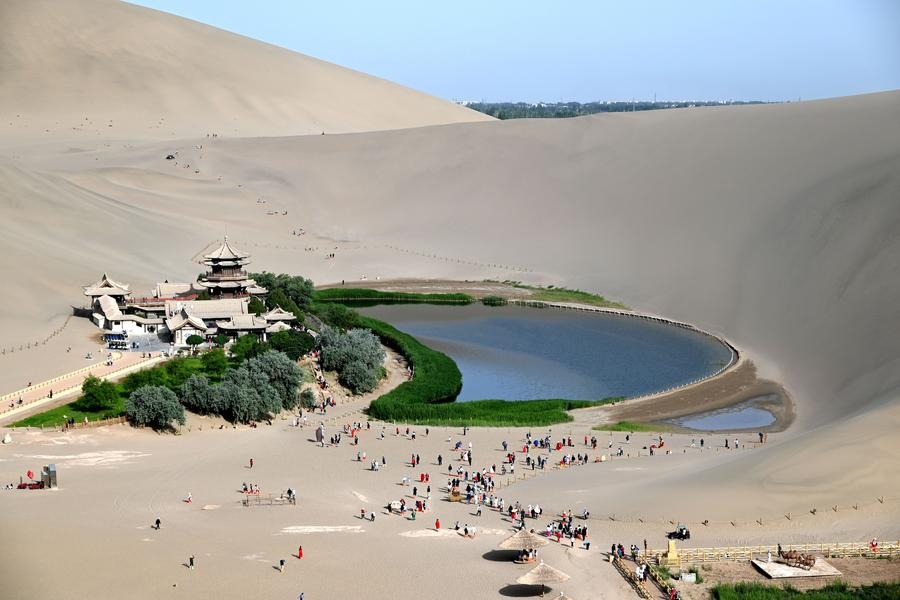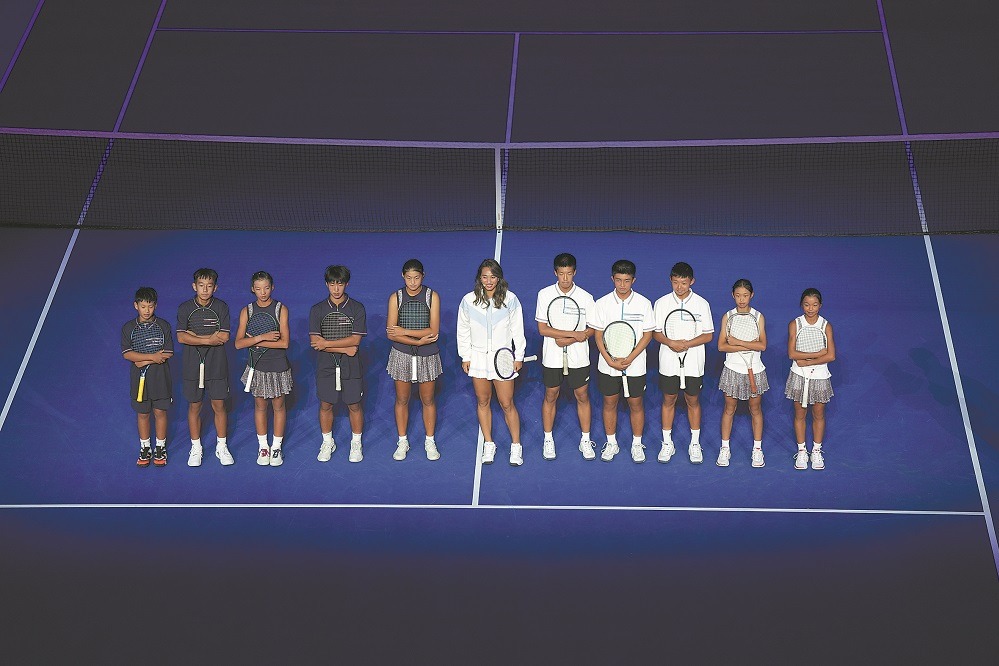An agricultural pioneer recalls her fruitful career

URUMQI-Eleven years after being diagnosed with Alzheimer's disease, 91-year-old Wu Mingzhu sometimes fails to recognize her former colleagues or even family members who live by her side.
But her memory of the melon varieties she developed while working in Northwest China's Xinjiang Uygur autonomous region lingers.
"Although my mom had to retire due to the disease, she would tell me that she was going to return to the melon farms in Xinjiang to help pollinate the melons," says Yang Xia, Wu's son.
Wu, an academician with the Chinese Academy of Engineering who is proficient in melon breeding, has made cultivating the fruit a lifelong career, with six decades of practice.
Born in Central China's Hubei province, she was admitted to Southwest Agricultural College in Chongqing with a major in horticulture in the late 1940s.
During the final semester, the students, including Wu, received letters from their seniors who had worked in Xinjiang. The letter stated that Xinjiang, dubbed "a land of melons and fruits", was in need of people who could help develop the melon industry. This marked the start of her bond with the region.
After her graduation in 1953, Wu was assigned to work in Chongqing and was later transferred to Wuhan in Hubei and thereafter to Beijing.
But, she had already set her eyes on her long-awaited goal-to work in Xinjiang's melon fields and apply the knowledge she had acquired in college.
Wu filed an application after Xinjiang Uygur autonomous region was officially established in 1955, and finally received approval. In the winter of the same year, she boarded a truck with all her belongings and left for the region's capital, Urumqi.
Though local watermelons and muskmelons tasted sweet and crisp, Wu found that the local farmers mainly relied on traditional farming techniques, and there was still much room for improvement in the yield and quality of their melons.
Starting in 1956, Wu and her colleagues met with local farmers to explore germ plasm resources in the summer heat of over 40 C. Wu lived and worked with farmers, learning how to cut wheat stalks, hoe cotton and ride donkey carts.
"At that time, there was no scientific research fund, so the usage of seeds, fertilizers and land were dependent on the support of local farmers. No matter which piece of land I wanted to conduct experiments on, they all agreed," she recalls.
She experimented with different breeding methods on melons during the day, and read documents that recorded 44 melon varieties that they summarized under candle light at night.
However, a well-timed reunion brought her a sigh of relief. In 1957, Wu's boyfriend, Yang Qiyou, arrived in Xinjiang to support her work. They graduated from the same college, and Yang Qiyou was a wheat expert. The next year, they got married.
Yang Qiyou offered his full support to Wu so she could concentrate on her studies.
"When he came across useful information in academic journals, he would always note it down for me. He helped me come up with new ideas," Wu says.
They spent nearly 30 years together before Yang Qiyou died of stomach cancer in 1986. The loss hit Wu like a thunderbolt. "I could manage all of the hardships in my life, but the sorrow of losing my husband to cancer was overwhelming," she says.
But when she returned to the melon fields in Xinjiang, she was the same dedicated woman.
Wu worked even harder, shuttling between Xinjiang and South China's Hainan province, where another melon-breeding base was set up in 1973.
She developed germ plasm resources, featuring characteristics like better disease resistance, finer fruit quality, greater adaptability and transportability, helping the farmers fatten their wallets.
Industry experts used to believe that it would take eight to 10 years or even longer to cultivate a high-quality variety. However, Wu and her colleagues developed 29 varieties-10 watermelon varieties and 19 muskmelon varieties.
In 2010, at the age of 80, Wu had to stop working due to the onset of Alzheimer's disease. Since then, she has been living in Chongqing with her son.
However, Wu's baton has been passed to the next generation.
"As the first chief scientist of China's melon industry, Wu set an example for us. I hope I will also be able to make some achievements in the field," says Ling Yueming, a young researcher with Hami Melon Research Center, Xinjiang Academy of Agricultural Sciences.
Xinhua
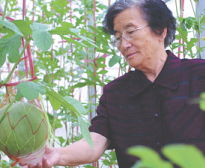
Today's Top News
- CNS Fujian carrier's commissioning 'won't be far off': Ministry
- Xi attends grand gathering in celebration of Xinjiang Uygur autonomous region's 70th founding anniversary
- China refines workplace safety, disaster response
- A vivid example reflects wisdom of China's governance
- A vital trade hub to connect central Asia
- China won't seek special treatment in WTO pacts

















